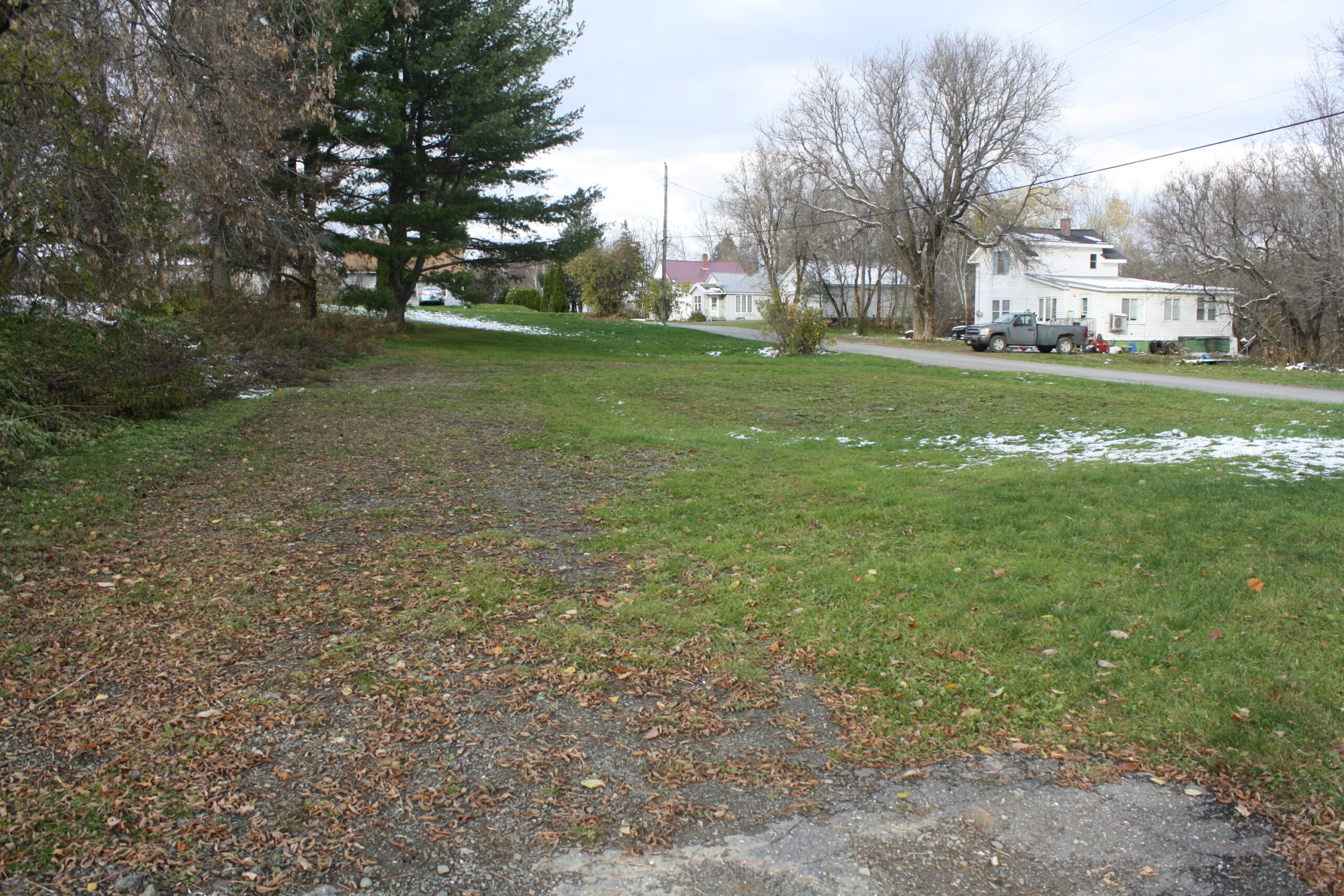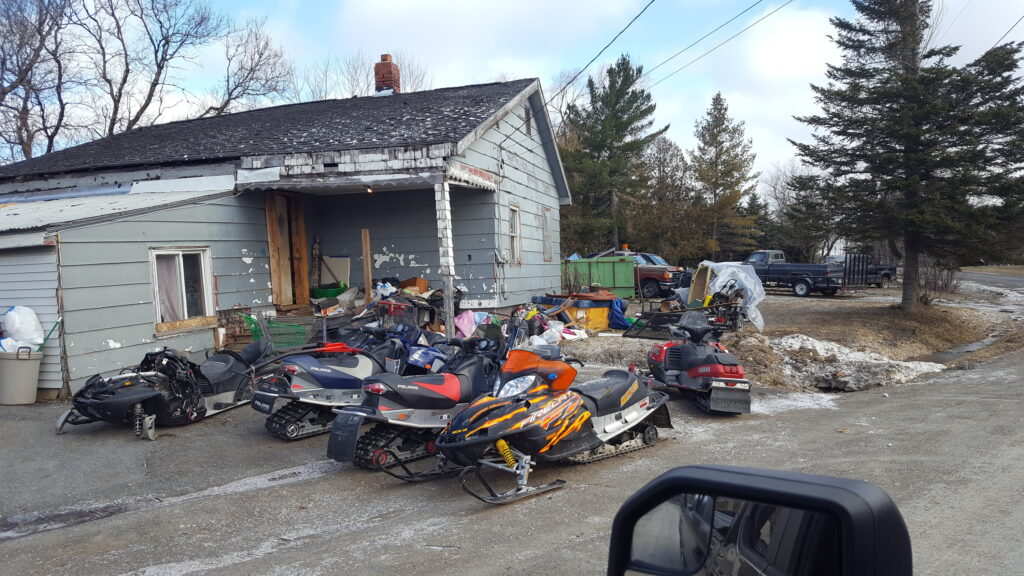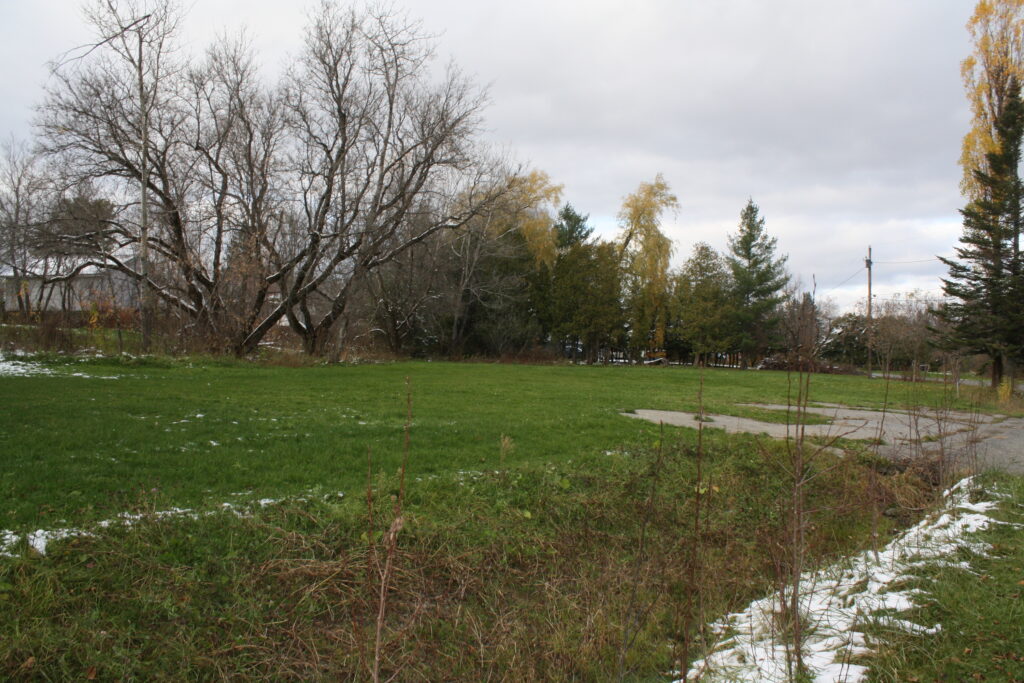
CARIBOU, Maine — Blighted properties are on the minds of Caribou city leaders more than ever, but a recent U.S. Supreme Court ruling could change how quickly officials clean up those properties and create more affordable housing.
In May, the Supreme Court ruled in the case of Tyler v. Hennepin County, Minnesota, that municipalities could no longer keep proceeds from sales of tax-acquired properties that exceed the amount of taxes owed by a property owner. Caribou had previously used sale proceeds to pay for cleaning up or demolishing blighted properties, in hopes of restoring neighborhoods and increasing the city’s housing stock.
“We no longer have the option to take possession of the property, clean it up and then sell it to be redeveloped,” said Penny Thompson, Caribou’s city manager. “It’s one less tool we have in our toolbox to fight blight.”
Like cities and towns throughout Maine, Caribou has stepped up efforts to combat blighted properties while trying to attract new businesses and residents. In 2019, Caribou tried to survey exactly how many blighted or dangerous buildings exist. That survey did not produce an exact number, as some properties are inconspicuous and not in the public eye, but it found that hundreds likely exist throughout the city.
The Supreme Court’s decision means Caribou cannot clean up or tear down a blighted property soon after acquiring it through unpaid taxes, as the city has previously done. Instead, it must try to contact the former owner, then attempt to sell the property through a real estate agent at the highest price, even if it goes to a former owner who did not maintain the property before.
The Maine Legislature revised the state tax lien foreclosure law to reflect the Supreme Court’s ruling. The law states that municipalities should pay to the former property owner any sale proceeds leftover after deducting total taxes owed, property tax value that would have been assessed after foreclosure, total interest from unpaid taxes, property listing and real estate broker’s fees, unpaid utility bills and costs that the city or town accrues from property maintenance or the foreclosure process, like lawyer fees.


Since the departure of Caribou’s former code enforcement officer, Ken Murchison, in May, Thompson has received daily calls from residents concerned about blighted properties in their neighborhoods. But now she is skeptical of how aggressively the city can confront the owners of those properties.
Last year, the city demolished 10 buildings that had been acquired through unpaid taxes, compared with five in 2021, including a home at 6 Midland St. that officials deemed a chronic nuisance. Neighbors had complained about trash not being removed from the front yard, resulting in many visits from police officers and city code enforcement, Thompson said.
As they demolished the home at 6 Midland, city officials decided to demolish three others on the adjacent Hillcrest Avenue that were also blighted and tax-acquired properties. The city saw an opportunity for someone to potentially build new housing in that neighborhood, Thompson said.
“Something like that isn’t possible now with the [Supreme Court’s] ruling,” Thompson said.
But despite that, one local nonprofit wants to explore how it might still partner with the city to create affordable housing units.
The Business Investment Group consists of Caribou residents and businessmen: Chair Troy Haney; Paul Powers, owner of Powers Roofing; Daniel Jarosz, owner of Caribou Climate Storage; Jacob Beaupre, owner of Beaupre’s Construction; Jim Gamage, owner of 180 Sealcoating; Mike Quinlan, co-owner of accounting firm Rockwell & Quinlan CPAs; Tim Todd; owner of R.L. Todd & Son; Dave Corriveau, a member of the Caribou Planning Board; and Hugh Kirkpatrick, general manager of the Caribou Utilities District.
Last year, the Business Investment Group purchased a vacant,15-acre plot at 30 North St. The land once contained a blighted home that the city demolished in 2021 after acquiring the property through unpaid taxes.
The land at 30 North St. sits adjacent to Hillcrest Avenue and Midland Street, making the area ideal for potential affordable housing units, Haney said. Group members are currently speaking with local investors who could finance and lead construction of a new home at 30 North St. next year.
“Hopefully, once we’re done with this project, we can try to replicate it in other neighborhoods,” Haney said. “We want to look at what the needs are, [like] if there’s a need for single or multi-family housing.”
The Business Investment Group wants to involve the city in that process. The group could, for example, try to purchase more land that the city acquired through unpaid taxes, Haney said.
For now, it’s unclear how the new state laws, resulting from the Supreme Court’s decision, will affect those efforts or the creation of a local land bank. Prior to the Supreme Court’s ruling, city and Business Investment Group members had been exploring how Caribou might place tax-acquired properties into a land bank and utilize state land bank funds to redevelop those properties.
Even if a land bank becomes unlikely, that will not stop the Business Investment Group from exploring what they and the city could do, Haney said.
“It won’t happen overnight and it’s not something our [investment] group will solve on our own. We’re just one spoke in the wheel,” Haney said. “It’s gonna take some public and private partnerships to redevelop these properties.”







